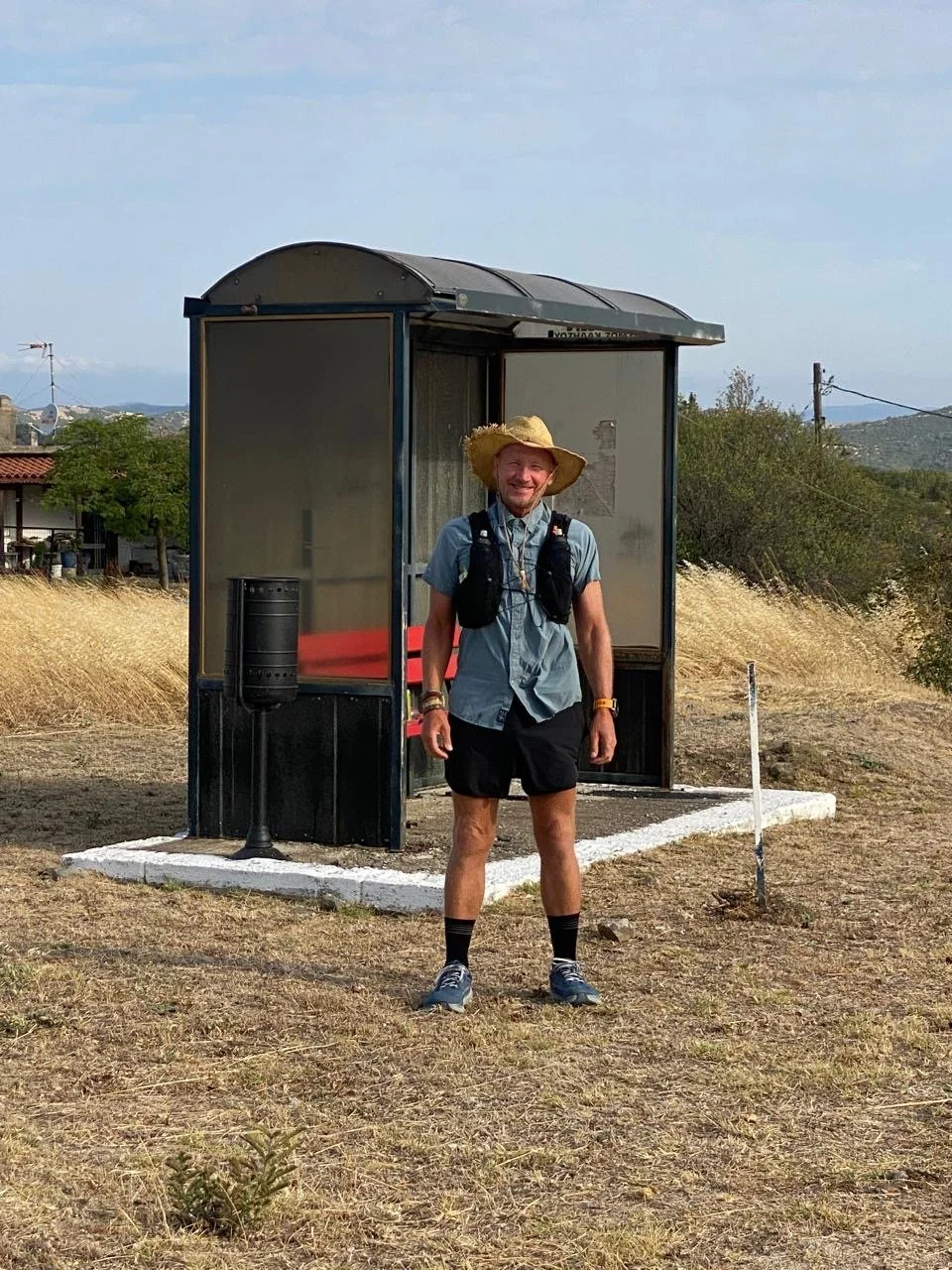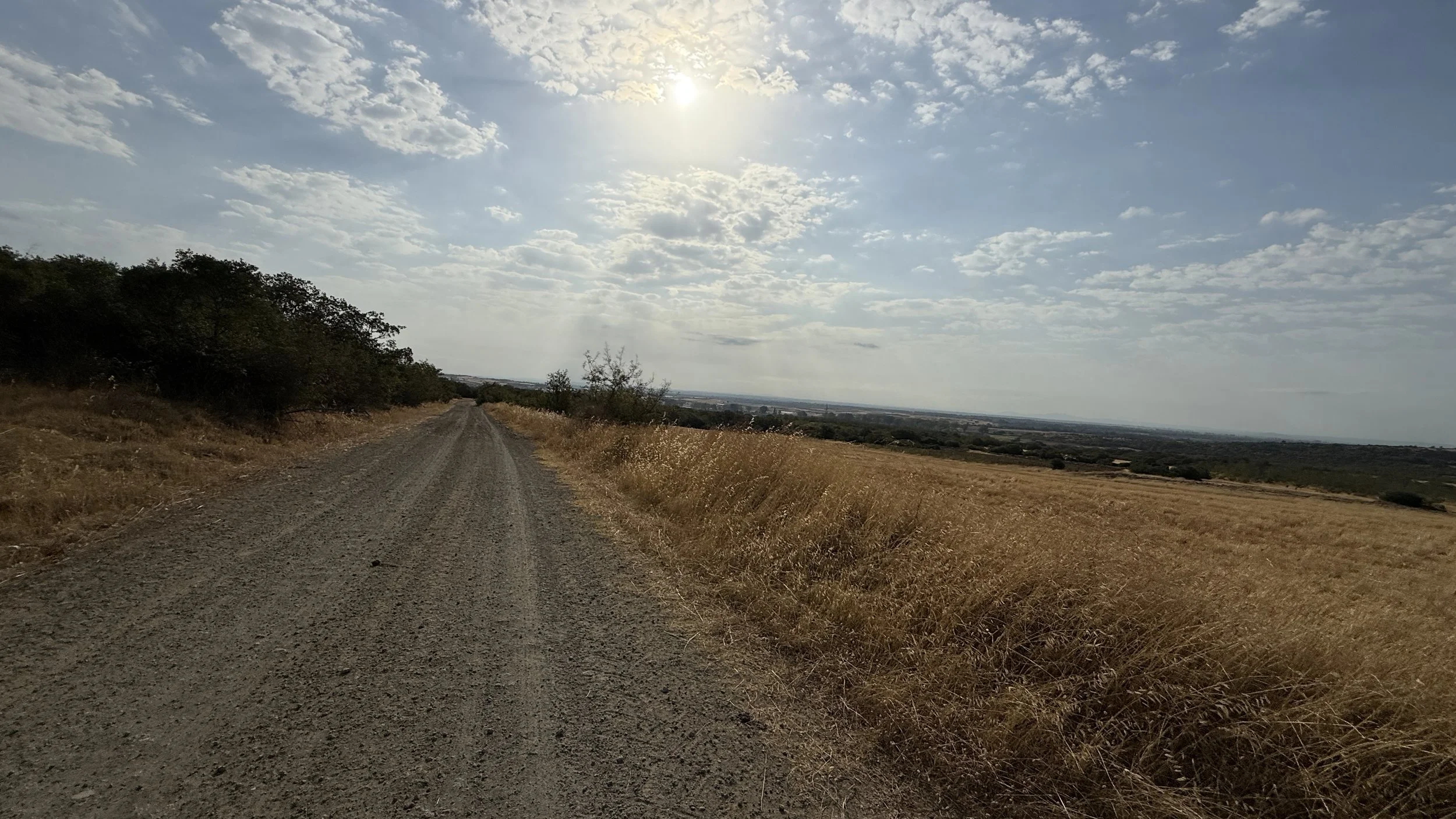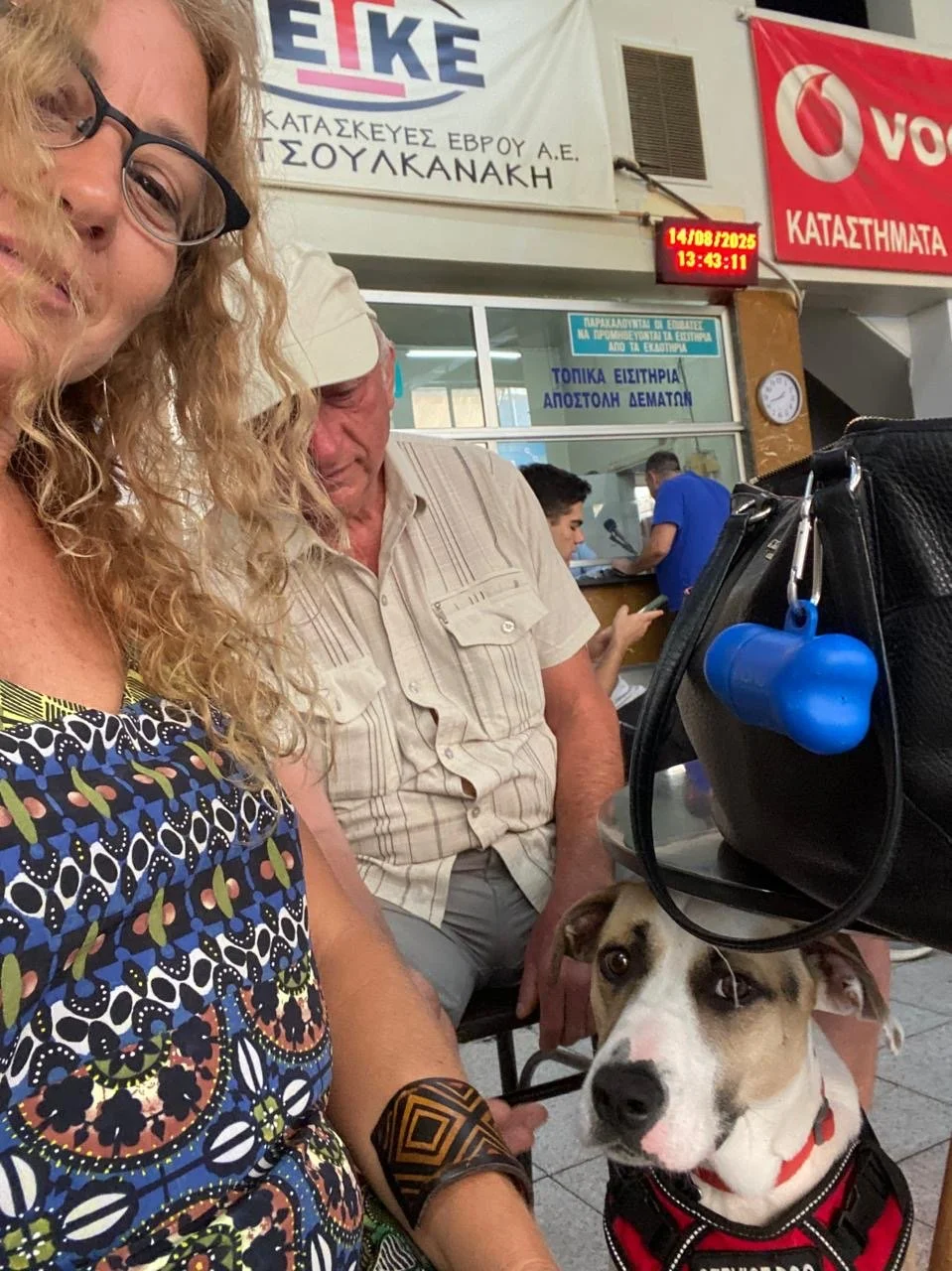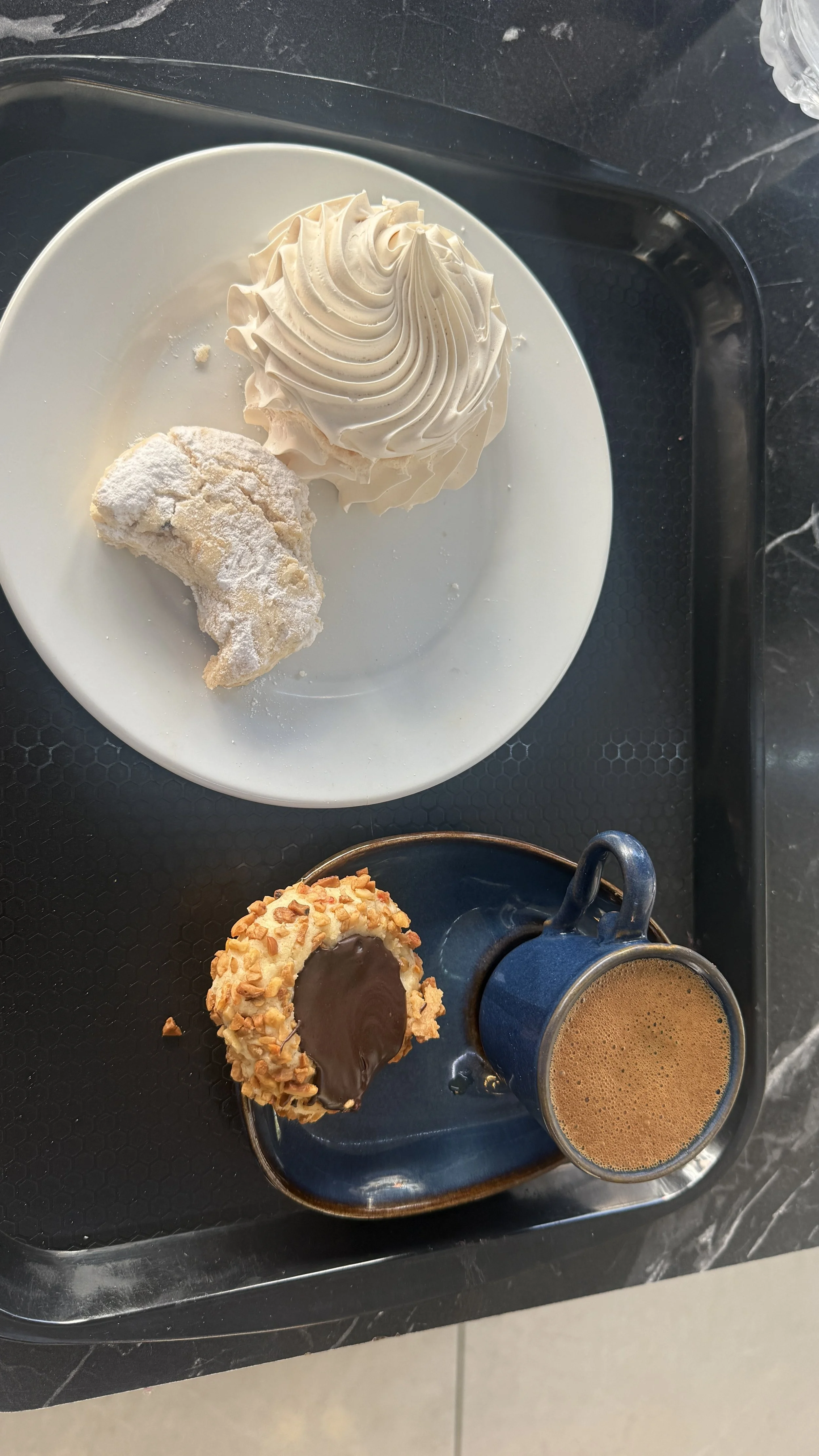Day 94 - August 14th: Final Frontier
Kavisos to Ipsala: 13 miles / 2,699 total
It was a hard 53 km to reach my stop. I spent four solo hours in the wilderness with not enough water, high winds in my face, and heat pressing down. I kept telling myself—pretend this is the next six days.
Christina’s final night on the journey was quietly marked in the small village of Tychero. We found La Boheme, a Greek restaurant serving pizza and pasta on the square. We were the only patrons from 7 p.m. until we left at 8:15. With her logistics in place, it was now my turn to see what would fall into—or out of—place.
The next morning, I stayed for breakfast at 8 a.m., giving me time to pack both for the road ahead and to separate what would stay behind. It was a tense and emotional meal. Tina was anxious about her bus trip; I had nerves about the border crossing. Even Jax seemed to sense the change—energized as if we were starting a new adventure, if only he knew.
I set off at 8:45 under cloudy skies with the same 25 mph headwind. Dirt roads rolled through open hills, dotted with military bases and vehicles coming and going. Christina and I had noticed the night before how many were in the area; I would soon learn why.
Tychero sits near the Evros River, which forms much of the land border between Greece and Turkey. This stretch has been heavily militarized for decades, both for national defense and to control irregular migration. Yet the Evros is far older than the modern boundary it marks. Known in antiquity as the Hebrus, it was crossed by Xerxes’ Persian army during the invasion of Greece in 480 BC and later guarded by Byzantine frontier forts protecting Constantinople. For centuries, it has been both a barrier and a gateway—its strategic importance never really fading.
As I neared the border, three separate cyclists passed—loaded down with panniers, likely on the same journey but much faster. At the Greek checkpoint, I went straight to the front of the line, as I’ve done in every country, and was greeted by a smiling officer who noticed all my stamps.
Beyond Greek control, trash piled up along the roadside. I entered a narrow corridor and reached two armed soldiers guarding a bridge that looked as though it could have been there since World War I. In fact, structures like this often date back to the Balkan Wars era (1912–13) or the First World War, when control of this crossing shifted repeatedly between Greek, Ottoman, and later Allied hands. Built for durability in wartime, such bridges often stayed in service for decades, patched and reinforced but rarely replaced.
On either side stood guardhouses, and beyond them, a Turkish flag about a hundred meters away. One guard introduced himself as Alex, a Greek soldier from Macedonia—“same as Alexander the Great,” he said. He explained I couldn’t walk across the bridge but would find me a ride. He stopped traffic from Greece, asking each driver in Greek to take me the short 100 meters. One after another declined. Some had cargo, others just didn’t want to. A lone man in a new SUV waved me off. “He is Bulgarian,” Alex remarked. Eventually, someone agreed, and Alex personally waved us through.
On the Turkish side, border officers seemed surprised to see a runner. They photographed me, checked my passport, and waved me on—no drama, just a smooth crossing.
From there it was a quick 5 km along a nearly empty highway toward Ipsala. Historically, Ipsala has been a crossroads of trade and agriculture, known for its rice fields and its position as a main entry point from Europe into Thrace. The modern highway I followed traces routes that merchants, armies, and migrants have used for centuries to cross between continents.
A left turn took me into the small village and to the Senko Apart Otel—no reception, unfinished construction. Christina, still handling logistics from afar, told me to take photos for a booking.com refund. I found the Park Hotel instead—three stars, clean, eerily quiet, but with no internet.
Then I discovered my first mistake: no Garmin charging cable.
Still, it was a successful first day in Turkey. Five big days left for Istanbul.
Thanks for support.
Cheers,
David.
P.s. Love Turkish coffee!





